Cool
100 Slang Sayings From the 20th Century
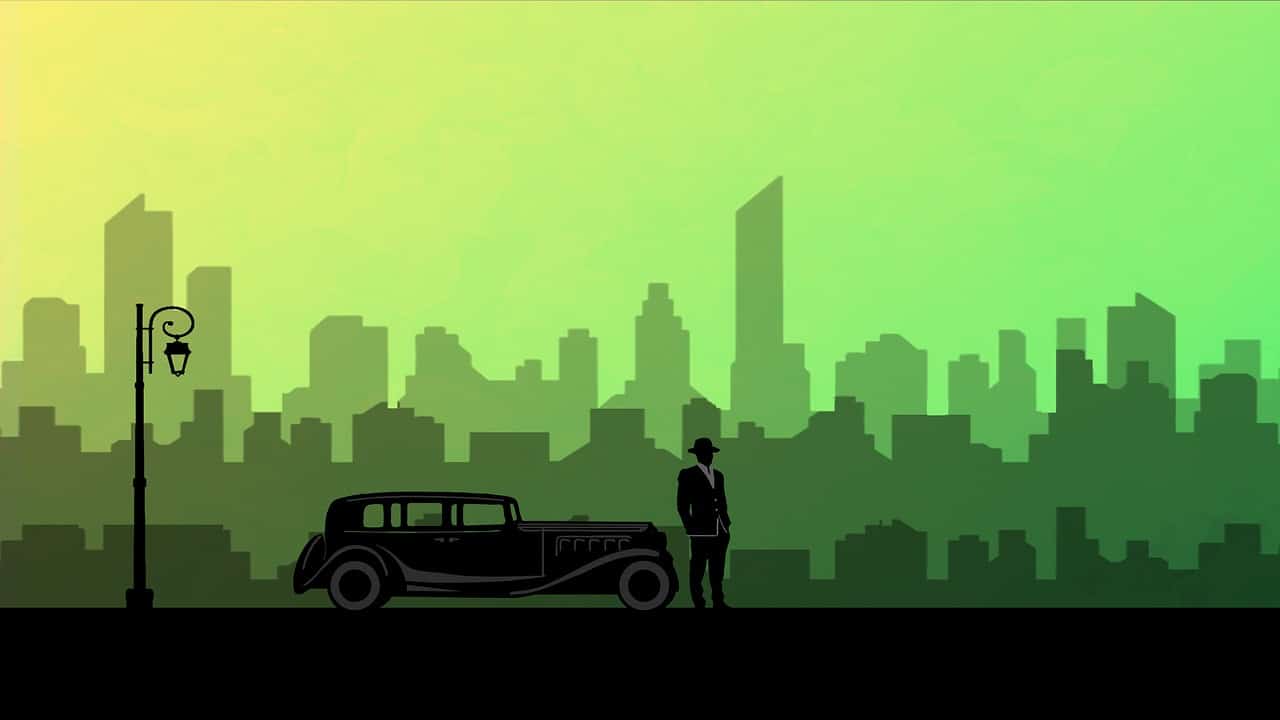
Have you ever watched a movie or TV show set in a different time period, caught onto a specific line or slang term, and wondered why it sounds so different from the way people speak nowadays? Don’t worry, you’re not the only one. Language has more to do with the inner workings of society than we realize, so it’s no surprise that as civilization changes, our styles of communication will too. What some might remember with fondness as the golden days of their youth, others today may only recall as an arbitrary set of dates out of a history textbook.
The 20th century was a time of exponential growth and rapid change. Earth endured two (almost three) world wars, several major economic crises, and the invention and popularization of everything from electricity, cars, radio, and television to disco, whiteboards, and stilettos. Words and language were jumping all over the place, and within the space of five years, it was entirely possible that one slang term could acquire ten different meanings!
We here at FamilyWise have scoured the internet high and low, searching for “What makes a century great?” Certainly, this is a multifaceted question, but we’ve come to the conclusion that slang words and the evolution of language are pretty significant factors. Below we’ve compiled a list of some of the most noteworthy slang trends and sayings from the 20th century.
Top 100 Slang Terms from the 20th Century
1. “Word from the bird”
Pop-culture often stems from the music industry, and that’s exactly true of this saying. 1960s bop group, The Rivingtons, inspired a dance craze with their hit songs “Papa-Oom-Mow-Mow” and “Bird is the Word,” from which this saying originated. In short, if something is described as the verified “word from the bird,” it’s basically the unequivocal truth.
2. “Cat”
Back in the 1920s and 30s, if someone was a “cat,” they weren’t necessarily feline. This was what you might call someone, particularly an artist, who’s cool, trendy, or hip.
3. “Knuckle sandwich”
Either this saying is a face-up threat or a really good tea-time snack. 1930s Hollywood popularized the phrase in movies like Dead End and Bowery Boys, featuring tough-and-up, macho-man characters hungry for a fight.
4. “Don’t flip your wig!”
This saying from the 1950s is another way of basically telling someone not to freak out. For example, “Don’t flip your wig Mom, but I accidentally threw a baseball through the kitchen window.”
5. “Burn rubber”
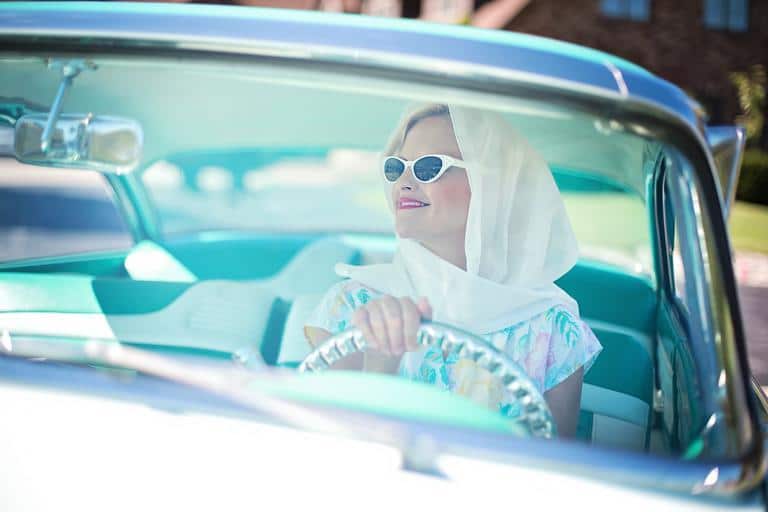
Source: SnappyGoat.com
This slang phrase might not be the best advice to give to a newly-licensed driver. In essence, to “burn rubber” is to exceed the speed limit; put your pedal to the metal, so to speak. Maybe not such a good idea for any amateur drivers out there.
6. “Cruisin’ for a bruisin'”
There’s nothing quite like a little of that 1950s Greaser sass to get you pumped and oiled up for a street fight. If you look at it from a certain point of view, this saying doubles as both a threat and a semi-compliment. If you’re “cruisin’ for a bruisin’,” it means you look particularly fight-able.
7. “Bust a gut”
There are ways to say ‘LOL’ without the mildly gruesome imagery that this saying implies, but I digress. In the early 1900s, if you laughed hard enough you were apparently in danger of “busting a gut,” or giggling until your stomach exploded. Pretty cool–also ew.
8. “Come on snake, let’s rattle!”
Like other phrases of the 1950s, this slang saying also had a double meaning. If you said this to someone, you were either itching for a fight or asking them to dance.
9. “Wet rag”

Source: depositphotos.com
Like all flimsy, ineffective household cleaning apparatuses, this saying doesn’t really make the surface shine. If someone described you as a “wet rag” back in the 1950s, it means you were considered a party-pooper, or someone who didn’t know how to have a good time.
10. “Freak flag”
When weird became the new cool, this Jimi Hendrix-inspired slang term became the average quirky person’s self-identifier. If someone considered themselves a “freak flag,” they saw themselves as different, eccentric, and maybe even a little bizarre.
11. “Heavy”
If you’ve ever seen the Back to the Future movies, you’re already clued in to what this term means. A “heavy” situation is probably pretty serious and consequential, just like “heavy” emotions would probably be the kind that weigh frequently on your mind.
12. “Lay it on me”
There’s nothing much to this one. It’s just a more casual, laid-back way of inviting someone to tell you what they’re thinking about.
13. “It’s a gas!”
No, this slang phrase really doesn’t have anything to do with nitrous oxide. Back in the Jazz ages, an especially fun party could be considered “a gas.” You’d use the saying to describe a hilarious situation, joke, or even a person.
14. “Can you dig it?”
Originating from somewhere in the 70s, this saying is essentially another way of asking, “Do you understand?” In simpler terms, if you dig it then you get it.
15. “Far out”
Slang historians postulate that this phrase can either be traced back to the California coast and the surfing community, or else popped straight out of the jazz era. Regardless of its origin, today the phrase is used to describe an unbelievable or extraordinary occurrence, person, or idea. For example, “Woah, the movie Interstellar is pretty far out!”
16. “Ankle-biter”

Source: depositphotos.com
Oddly specific as this slang phrase’s definition is, its usage is even odder. The name “ankle-biter” could be used to describe anything from puppies to preschoolers. If they rolled, crawled, or sat around on the ground, the adults of the 1950s would probably have referred to them using this term.
17. “Made in the shade”
When someone asks how your life is going, the phrase “I’ve got it made in the shade” probably isn’t the first that pops into your mind. Today, describing something as “shady” implies that it’s suspicious, questionable, or untrustworthy. Back in the 50s, however, shade had a whole lot more to do with cool, laid-back days of ease.
18. “Beat feet”
If you were a juvenile troublemaker back in junior high or high school, you probably did this more than once. To beat one’s feet was to make a quick getaway, most often involving running, and most often uttered amidst hijinks gone wrong.
19. “Pad”
Sure, there are better-sounding ways to refer to your home or living space, but come on! Who doesn’t love a little arbitrary retro simplicity? Back in the 50s, you wouldn’t simply ask your friends over to your house, you’d invite them to come hang at your “pad”–which sounded much cooler, at least back then.
20. “Germsville”
Back in the mid-20th century, catching a cold wasn’t as simple as we might think of it today. A case of the sniffles was a sure ticket to “germsville,” and if you got sick for a long period of time, you were there for an extended visit.
21. “Peepers”

Source: depositphotos.com
Short-sided and far-sighted glasses-wearers all have one thing in common: they most likely need a pair of these. “Peepers” are a slang way to refer to glasses. For example, “Hurry up, Jenny! We’re going to be late for your driver’s test.” “One second, Mom. I’ve gotta’ grab my peepers.”
22. “Hunk of junk”
There are more than a few ways to refer to a dated, sputtery automobile, but this one takes the cake. If you wanted to really dig on your guy friend in high school, you might call his car a “hunk of junk.”
23. “Bummer”
This one’s still widely used today. If something’s a “bummer,” it’s probably not an ideal situation. The word was popularized back in the 1960s as a slang way of describing an unfortunate occurrence.
24. “Hang loose”

Source: flickr.com
Surf bums in the early days didn’t really have a whole lot going on. They’d spend their days lounging on the beach, or “hanging loose,” as the saying goes. This phrase is essentially another way of saying “relax” or “have some fun.”
25. “What’s your bag?”
This 60s saying was another way of asking, “What’s bothering you?” or “Why so agitated?” Though if someone is genuinely irritated this might be the wrong question to ask, as it’ll probably upset them even more.
26. “The fuzz”
Yet another slang term from the 1960s that continues to elude us as to its origins, this term was a cool way of referring to the police. For example, you might say, “Slow down, the fuzz are right behind us!”
27. “Fink”
If someone was considered a “fink,” it probably meant they were a little bit of a tattletale. The word’s origins aren’t explicitly known, but it’s believed to come from the German word “finch,” meaning a type of bird.
28. “Fab”
This shortened form of the word fabulous wasn’t really a slang term, per-say. Rather, it could be used as a definitive adjective used to describe anything remarkable, stylish, trendy, or just plain awesome. For example, “That dress is totally fab!”
29. “Split”
If you’re looking to get out of somewhere quick, you’re planning on “splitting.” This was just a slang synonym for “leave” or “exit.”
30. “Bread”
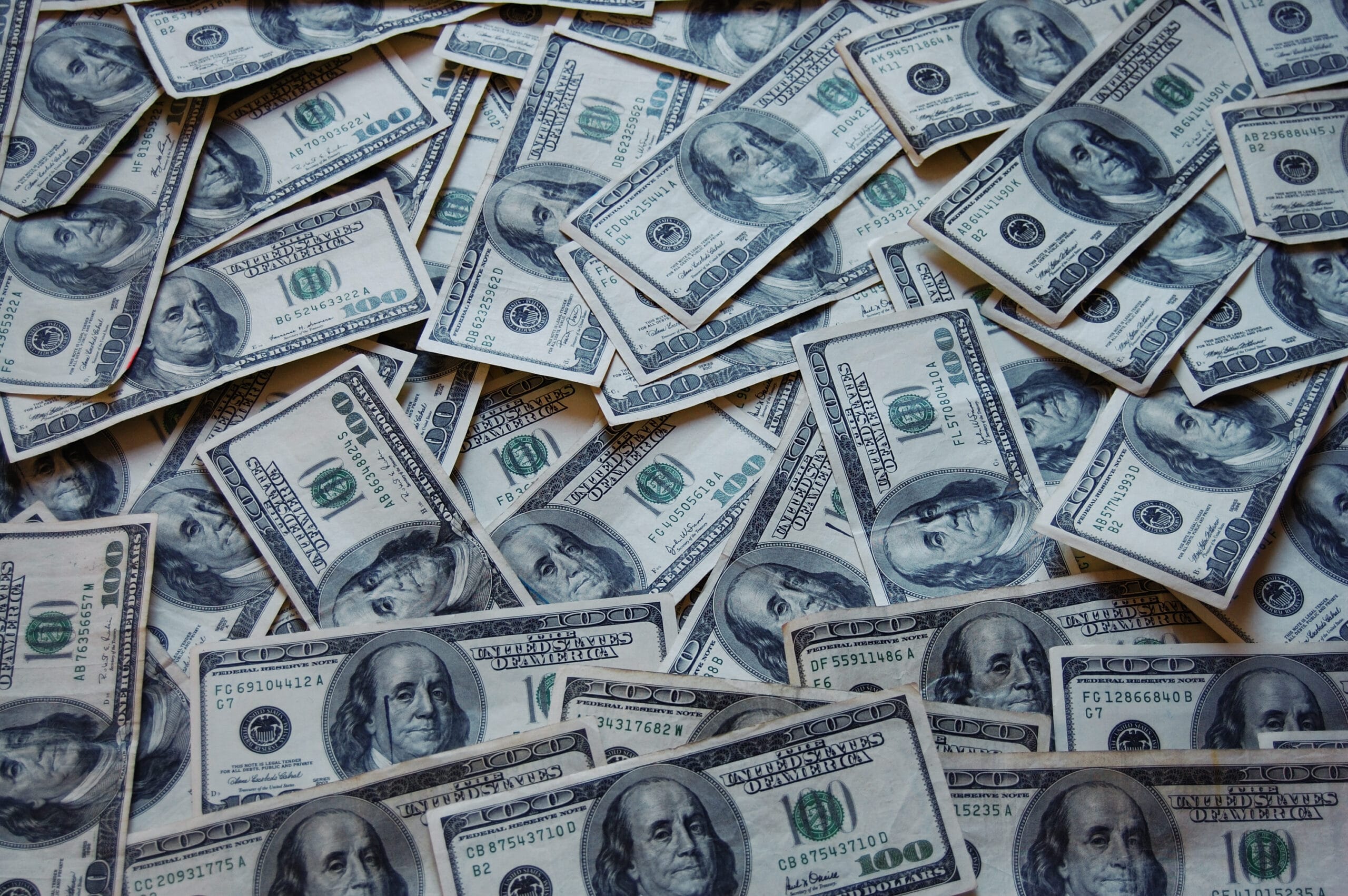
Source: commons.wikimedia.org
This term has come back to popularity in recent years, thanks to a viral meme in 2018. No, the slang term “bread” is not actually referring to baked yeasty carbs, but rather paper money. When someone says “let’s get this bread,” it really means “let’s make some cash.”
31. “Goober”
This one might evoke some nasty images of snot and nose goo, but that’s surprisingly not what it means at all. Back in the 1960s, a “goober” was someone who often acted silly or foolish. For example, you might describe the class clown as a goober, though it might be misinterpreted in today’s classrooms.
32. “Shindig”
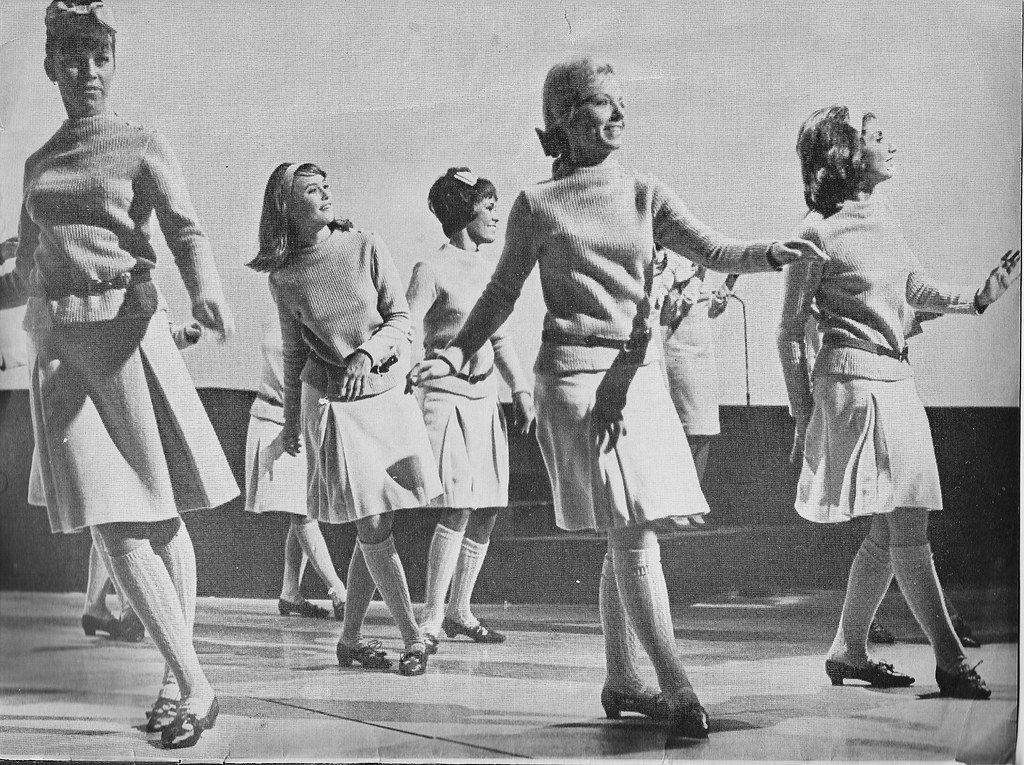
Source: flickr.com
So it’s 1922. You’re hosting a party, but you don’t want anyone to know you’re hosting a party–mostly because prohibition is as big as your stash of alcohol, but also because the word “party” is just so overused. There’s going to be dancing, jiving, laughing, and fun, so you might as well call it a “shindig,” if only to save yourself the trouble of getting busted by the police.
33. “Square”
If someone’s a “square,” they’ve gotten a little too used to the idea of being normal. In the 60s, if you were described as a “square,” it probably meant you were just a little bit boring.
34. “Punch it!”
Despite how it sounds, this slang saying was not intended to incite violence. In reality, if you hopped into a car late for work, you’d probably “punch it” on the gas pedal. (Or maybe you’re in the middle of a space battle with the Intergalactic Empire and need to make a quick escape, in which case you’d probably tell your Wookie co-pilot to “punch it” on the hyperdrive.)
35. “Catch you on the flip-side”

Source: depositphotos.com
This quippy way of saying goodbye originated in the golden days of DJ radio. It refers to the changing from the A-side to the B-side of a vinyl record, the way they used to listen to albums in the good ole’ days. When tomorrow is on the opposite side of today, there’s really no better way to say “see you later.”
36. “Psyche!”
Alternatively spelled sike or psych, this one-word “gotcha!” synonym often follows a particular sort of joke, in which the joke-teller excludes the joke-receiver from the actual essence of the joke. Usually, it’s the annoying co-worker who thinks he’s funnier than he is or the class clown who uses bad humor to cover up the fact that he’s actually an insulting bully. Don’t worry, they’ll get their comeuppance.
37. “Five-finger discount”
So we’re not criminals here, but this slang thieving reference from the 60s has got us counting our coupons. If you’re looking for a “five-finger discount,” then you’re looking to steal something. The catch is, only items that can fit into your pocket or the palm of your hand qualify for the “five-finger discount.”
38. “Make the scene”
Though it could be misconstrued to mean “don’t make a scene,” this saying has a whole different meaning. If you “made the scene,” you’d officially arrived at the party, place, or person’s house everyone wanted to be at. Not literally everyone, of course, but you get the gist.
39. “Do me a solid”

Source: stocksnap.io
This slang phrase’s origins are pretty much as variable as its meaning. Some say they first heard it in the early 70s on the West Coast among the laid-back communities of surfin’ folk, while others swear the popular 90s sitcom Seinfeld was the first place they’d ever heard it. Regardless, if someone asks you to “do them a solid,” it means they’re asking you for a favor.
40. “The man”
So there are positive and negative connotations to this saying. If someone says “you’re the man” with a smile on their face, it’s safe to assume they’re giving you a compliment. If, however, someone refers to “the Man” with a capital M, they’re probably referring to the government, the Institution, the bigger organization that controls the simulation of life, if you will.
41. “Boogie down”
This phrase has followed the origins of hip-hop since the early days. Back in the era of MCs, DJs, and disco balls, if you went out dancing, you were officially “boogie-in’ down.”
42. “Get a wiggle on!”
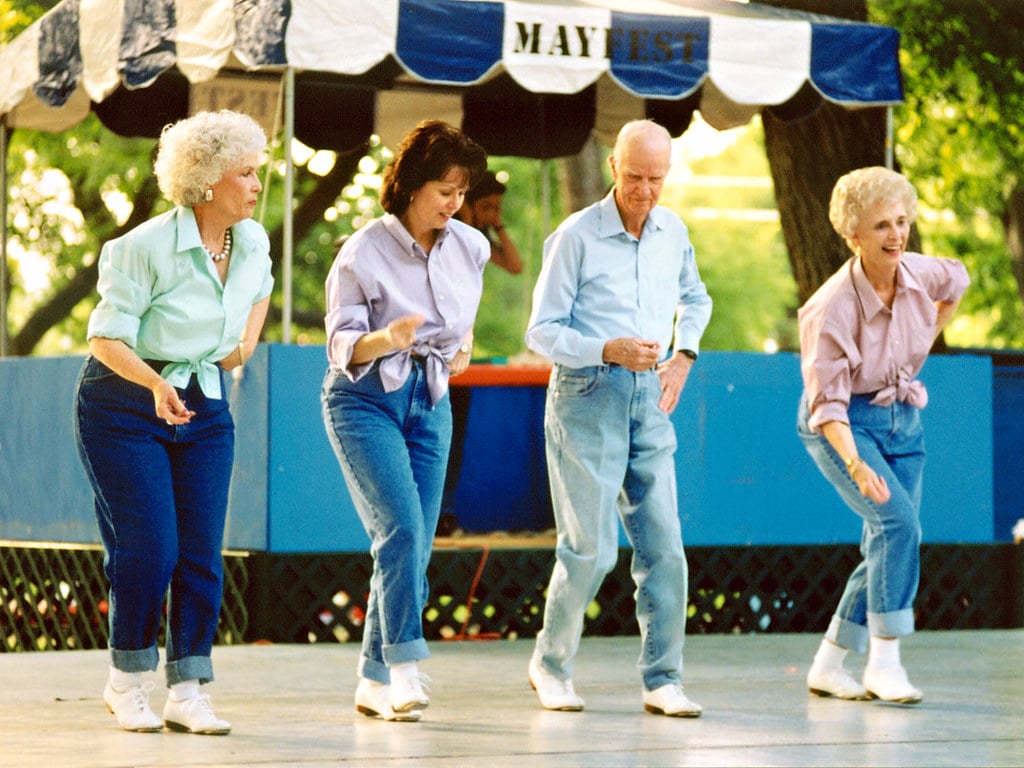
Source: flickr.com
Following with the dance theme, this 1930s phrase was just another way of saying, “Let’s dance!” Although today, it might get you some weird looks at the club.
43. “Stop dipping in my kool-aid!”
In the 1970s, this name-brand, powder-based, high flavor drink was at its peak of popularity, but this phrase really has nothing to do with fruit punch. If someone is “dipping in your kool-aid,” it means they’re sticking their nose where it doesn’t belong. The whole phrase itself translates to “mind your own business.”
44. “Spaz”
In the 60s, the word spastic shifted from its original descriptor for one with a medical condition or physical uncoordination to a colloquial term of endearment. If you’re high energy, awkward, or scatterbrained, you could be described as a “spaz.”
45. “Take a chill pill”
The OG “chill pill” referred to ADHD medication developed back in the early 80s, and it was actually a real pill. Nowadays, however, this slang phrase is just another way of telling someone to calm down.
46. “Cool beans”
Though thought to have originated in the 70s, this phrase became more widely used thanks to the fun-loving Full House character DJ Tanner in the 1980s. If something is “cool beans,” it’s fashionable, appealing, trendy, or impressive.
47. “Hanging”

Source: pixnio.com
The early 20th century saw a whole lot of fresh new trends, like the automobile and electricity. But if something could be considered absolutely “hanging,” it was probably the peak of fashion.
48. “Glad rags”
This cute little expression was what kids back in the 30s used to refer to their dress clothes. If you were going out in your “glad rags,” you were going out in style.
49. “10-4 good buddy”
We think this one’s more exclusive to truckers and pilots, but regardless, it is quintessentially 70s. Similar to the commonly-known phrase, “over and out,” it’s used to convey mutual understanding, typically over a radio or walkie-talkie.
50. “Dead hoofer”
Not only does this sound like an immaculate insult in and of itself–seriously, what more could you ask for in an insult?–but it’s also from the 1940s! If someone’s a “dead hoofer,” they probably don’t have the smoothest dance moves.
51. “Mirror warmer”
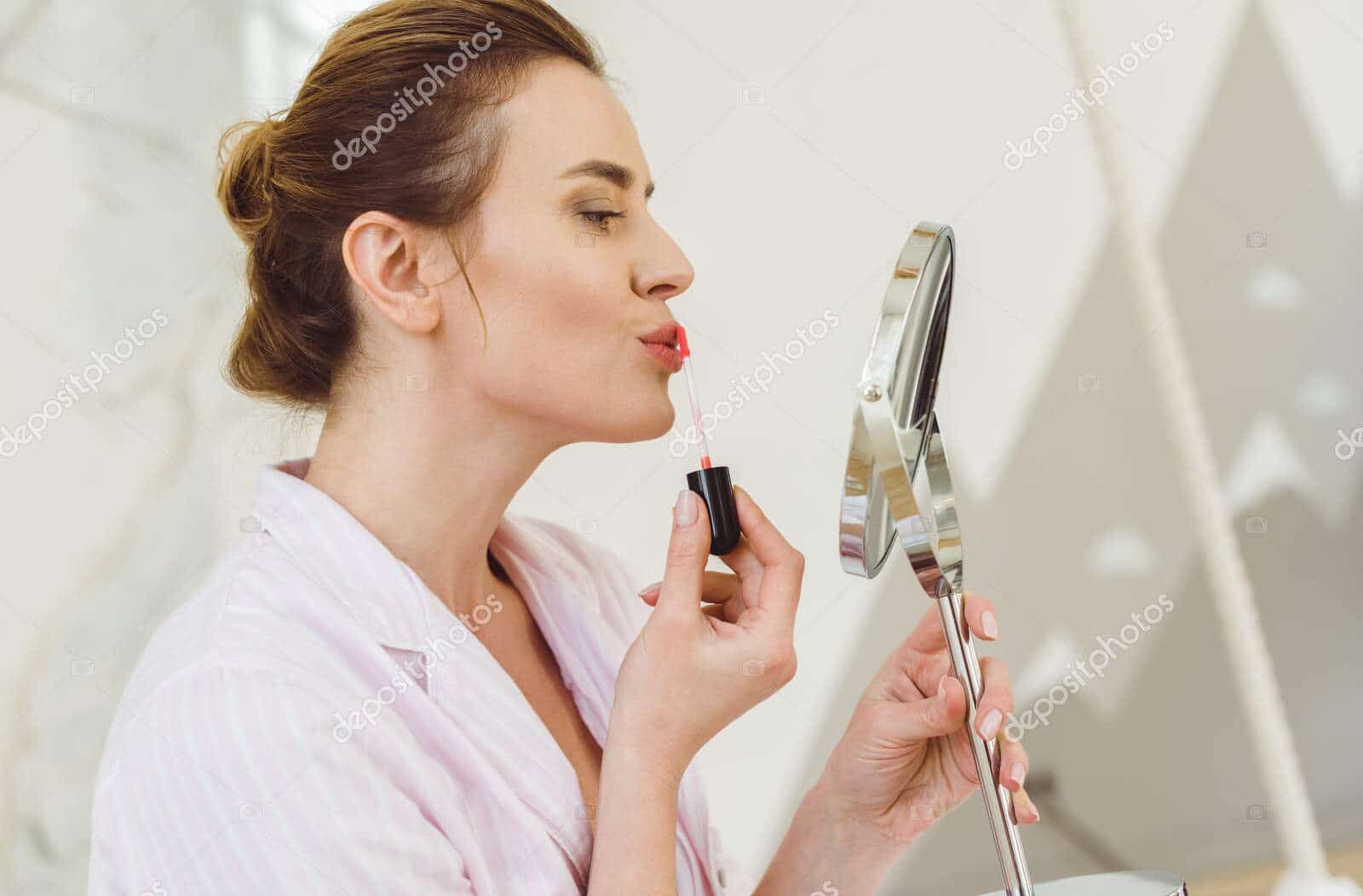
Source: depositphotos.com
We’ve had our fair share of noteworthy insults on this list, but this one belongs in its own uber-specific category: Insults for People Who Spend Too Much Time In Front of the Mirror.
52. “Skinny”
The 70s was a prolific time for random new lingo. This slang term is synonymous with “gossip,” most often used over neighborhood ladies’ brunches. (i.e. “What’s the skinny on Janice’s new minvan?”)
53. “Barf me out!”
So the 80s would have us believe Valley Girls were a whole different breed of mean. Whether that’s true or not, they did coin some pretty gruesome slang sayings, of which this might be one of the worst. If a valley girl saw something (or someone) that didn’t appear up to the social par, they’d use this as an expression of disgust.
54. “To the max”
You’re determined, ready to go all the way. You want to push it to the limit. You want to go “to the MAX!”
55. “Don’t kirk out”

Source: pixabay.com
All you Trekkies out there, don’t freak out–or should we say, don’t “kirk out.” This saying really has less to do with the famous USS Enterprise Captain than it might appear. Ironically, it’s the 80s way of telling someone not to lose their cool.
56. “Buggin'”
Thanks to the iconic 90s film Clueless, this slang term has likely gotten more screen time than any other phrase on this list. If you were “buggin’,” the situation was probably pretty confusing, difficult, or complex.
57. “Props”
Rather than go through the trouble of giving someone credit where credit is due the old-fashioned way, you might as well just say, “Props, dude,” and get it over with. It’s a shortened version of the term “proper dues.”
58. “Wisenheimer”
If you’re looking for a more creative way to call someone a “know-it-all,” this is the slang for you. Hailing from the early 1900s, this antique insult might just be the perfect blend of nonsense and perfect sense.
59. “Bogue”
The 70s weren’t just a time for vocabulary minimization, but also already-easy-to-pronounce word minimization, as well. If something is “bogue,” it’s an adverse situation, sometimes disastrous, usually always a bummer.
60. “Talk to the hand”
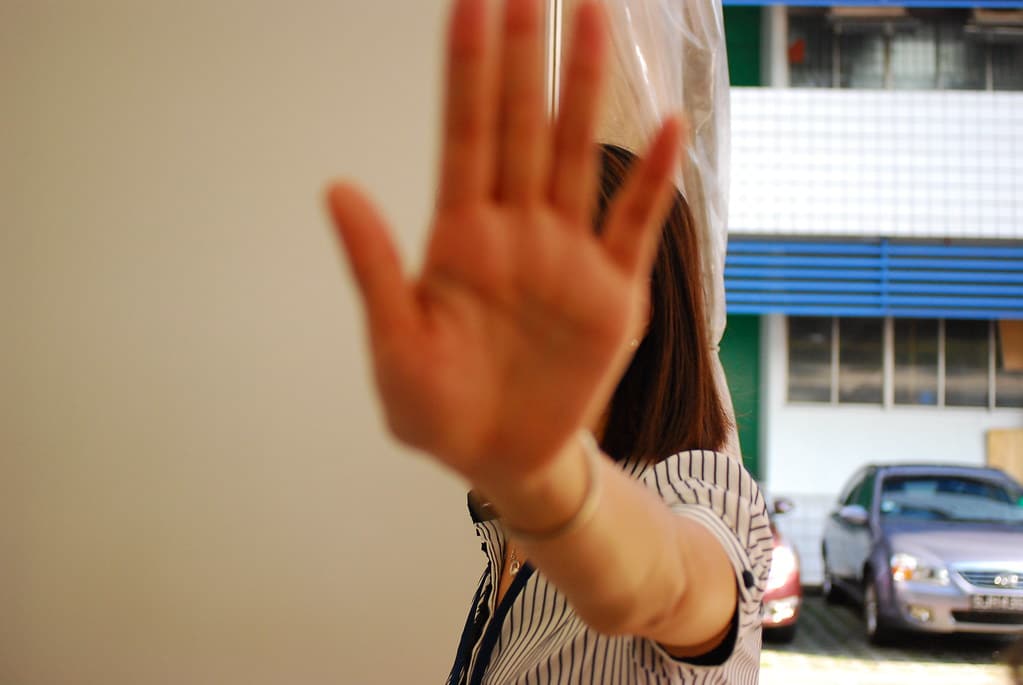
Source: flickr.com
The full saying goes, “Talk to the hand, ’cause the face ain’t listening!” But we don’t need to get into semantics. Essentially, this 90s-coined saying is what you might say to a particularly annoying someone (or sibling) if you wanted them to stop talking to you.
61. “Mall-maggot”
In the 1980s, cell phones were about as vague and obsolete a concept as the idea of water on Mars. Which is to say that kids really had nothing better to do than hang around at the mall all day. This slang term pretty much encapsulates an older generations’ regard for the pegged-pants-wearing, scrunchie-wielding, Janet Jackson-lauding loafers.
62. “Party-hardy”
If you’ve never heard this expression before, it means you haven’t really done it. To “party-hardy” is simple to party hard. Or to party heartily, which is another form of the expression that means the same thing.
63. “Brick house”
Popularized by the Commodores’ 1977 one-hit-wonder of the same name, this slang phrase was used to refer to a formidable and well-groomed woman. If she was a “brick house,” she was dangerous, super fly, and she definitely knew what it was all about.
64. “Fine as wine”
So objectifying women is NOT what we here at FamilyWise are about, but this 60s expression follows the theme of impressive females. If someone was “fine as wine,” they were powerful, beautiful, and most likely mildly intimidating.
65. “Copacetic”

Source: freeimg.net
This slang term originated from who-knows-where in the 20s, and it pretty much means nothing more than what it means. If something is “copacetic,” it’s all good, excellent, or in perfect condition.
66. “Get bent!”
Deprecatory slang was one of the big deals of the 90s, as exemplified by this rude slang saying. Bart Simpson popularized the phrase, but it was used largely against someone you didn’t like. If someone told you to “get bent,” they probably didn’t want you anywhere near them.
67. “Gag me with a spoon!”
The quintessential slang saying of the 80s, this phrase is still widely used today in fond reference to the decade of legwarmers, aerobics outfits, and big hair. If something gross you out enough back in the 80s, you might use this phrase to emphasize your disgust or express disbelief.
68. “Horsefeathers”
In the 1920s, cuss words were pretty few and far between–if not pretty much entirely obsolete in polite society. This nonsense term was used in place of actual curses. But who really knows what a “horsefeather” is, anyway? Do with it what you will.
69. “Keep on keepin’ on”
This slang phrase has some vague origins, but it essentially means “don’t give up.” When you get into a tough spot, just “keep on keepin’ on.” You’ll get through.
70. “Bag your face”
You might not want to use this phrase on anybody, as it’ll probably get you no friends. If you say “bag your face” to someone, you’re basically saying you think they’re ugly. Not very nice.
71. “Drag”

Source: pixabay.com
If a party is a total “drag,” it’s not a party you want to go to. If you don’t like your job, you might also describe it as a “drag.” The 70s coined this phrase, shifting its meaning from the act of pulling an object behind you, to a totally boring public event.
72. “Chrome dome”
This timeless phrase is a loving way to refer to all the baldies in your life. At least, we hope you’ll use it lovingly.
73. “Wacked”
In the 90s, if your high school bully called you “wacked,” it was just another predictable insult. It’s just your typical synonym for weirdo, freak, or loser.
74. “Gnarly”

Source: flickr.com
Surfer lingo of the 80s became skater-kid lingo of the 90s. This phrase is another way to describe something awesome. If you’ve ever ridden a nice wave or managed a kick-flip, you have some pretty “gnarly” skills.
75. “All to the mustard”
The power of condiments is so far-reaching and eclectic, we really don’t know the half of it. This 1920s saying was used to describe something excellent. If a situation was “all to the mustard,” it was all under control, perfectly handled, and not to be worried about.
76. “Birthday suit”
This one is still used today but was popularized in the 20s as a nicer way of saying the word naked–because that was just too taboo, of course.
77. “Have a cow”
To make a bigger deal out of something than it’s intended to be made into, or else to defy all the known laws of nature by giving birth to one of these bovine ungulates.
78. “Flumadiddle”

Source: depositphotos.com
It seems fitting that one should use nonsense to describe something nonsensical, right? That’s exactly true of this slang term from the early 20th century, which is a synonym for humbug, absurdity, or foolishness.
79. “Not even!”
Usually, this one’s said in a high-pitched voice. At least that’s how we read it. In the 80s and 90s, this phrase was used as a strong refute. If someone said something you found wholeheartedly false, “Not even!” was an appropriate response. (Everywhere but a courtroom, anyway.)
80. “Full of prunes”
There’s nothing wrong with this fruit, per see. It just gets a lot more flack than it probably deserves. If someone is “full of prunes,” they’re blatantly wrong about something.
81. “Grody”

Source: depositphotos.com
Spelling errors abound with this icky slang term: grodie, grodee, grodelicious! (Nah, we’re just kidding about that last one.) Regardless, in whichever spelling format its slang-wielder chooses, this saying is unfailingly used to describe particularly disgusting situations, objects, and sometimes even people.
82. “It’s a doozy!”
If something is a “doozy,” it really is a big deal. Most often, it’s used to describe a situation or person that is just simply too overwhelming to put into words.
83. “Grindage”
As weird as this one sounds, it makes pretty literal sense. “Grindage” refers to eating, meaning that when you’re looking for lunch you might as well say, “I’m ready for some serious grindage.” However, we’d suggest using this in very specific contexts only, as it may easily get misinterpreted. (Properly pronounced, “grinde-udge“)
84. “Absotively”
This odd-sounding conglomeration of the words absolutely and positively was popularized in the 20s. I guess when you had flapper-dancing and cocktail-drinking to do, you just didn’t have enough time to emphasize your certainty in more than one word. (i.e. “Are you sure this speakeasy’s not gonna’ get busted?” “Absotively!”)
85. “Stoked”

Source: pixahive.com
We’re guessing you’ve heard this one before, but if you haven’t, it’s a synonym for excited. If you’re “stoked” to go to a party, it’s going to be a good time.
86. “Going ballistic”
While this word refers to military-grade missile weaponry, it can also refer to someone’s over-the-top temper. If you’re a hotheaded individual, you probably know what it feels like to go “ballistic.”
87. “Veg out”
Still widely used today, this phrase is another way to say you’re taking the day off, probably binge-watching your favorite HBO series or Netflix original, snuggled up in blankets with your favorite snacks. Don’t feel bad; we all need to “veg out” a little every now and then.
88. “Wig chop”
Not everybody needs to wear wigs, but everybody occasionally needs to get a “wig chop.” This 1950s saying translates to “haircut.” Why, exactly? We certainly don’t know.
89. “Earth pads”

Source: flickr.com
Only the uncool kids of the 40s and 50s referred to footwear as shoes. And besides, who wants boring old shoes when you can have “Earth pads?”
90. “Slurg”
Picture this: It’s a 97-degree July day in 1953. You just got a couple of quarters for trimming your neighbor’s grass. What better way to spend it than to cycle down to the diner and slurp on a nice, cold “slurg?” As weird as it sounds, this slang term is simply another way to refer to a milkshake.
91. “Bust a move”
First used in the late 80s, this phrase was a trademark of the famous hip-hop group the Beastie Boys before it was more widely popularized by Young MC in his song of the same name. The saying itself means “to dance,” or more specifically, “to begin dancing very suddenly.”
92. “Gettin’ jiggy wit it!”
The 90s introduced us to cultural phenomena after cultural phenomena, it’s true. But perhaps one of the most noteworthy was Will Smith’s ’97 solo debut album Big Willie Style, from which we acquired this prime specimen of a 20th-century slang saying. If someone is “gettin’ jiggy wit it,” they’re dancing up a storm.
93. “Fly”

Source: depositphotos.com
If you were considered “fly” back in the day, people weren’t calling you an annoying insect. In fact, this term was used as a compliment back in the 80s and 90s. To be “fly” was to be stylish, hip, and the epitome of cool.
94. “Old lady”
Though this one sounds like a lighthearted jab, it was actually a term of endearment used in reference to one’s wife or girlfriend. For example, “Hey Joe, we’re going out for drinks after work. You should come!” “Nah, I think I’m gonna’ get home to the old lady.”
95. “Cut the mustard”
This slang saying is one of the few on our list that’s over 100 years old, originating from the 1907 story The Heart of the West. If someone’s “cut the mustard,” they’re successful at meeting and exceeding expectations.
96. “Space cadet”

Source: nara.getarchive.net
This phrase refers to someone who zones out a lot. If you’re easily distracted or often find you’re mind wandering, this slang applies to you.
97. “Cross my heart and hope to die”
Though it’s not your typical slang, this saying is still widely used today. If you “cross your heart and hope to die,” you make a promise that you can’t possibly break.
98. “Make goo-goo eyes”
Back in the early 1900s, if someone was accused of “making goo-goo eyes,” it meant they were crushing hard on someone. Maybe it had something to do with the way you feel absolutely “goo-goo” around someone you like.
99. “Live wire”
There really aren’t any more perfect ways to refer to an energetic person. If someone’s considered a “live wire,” they’ve got a bad case of the antsies.
100. “Bring home the bacon”
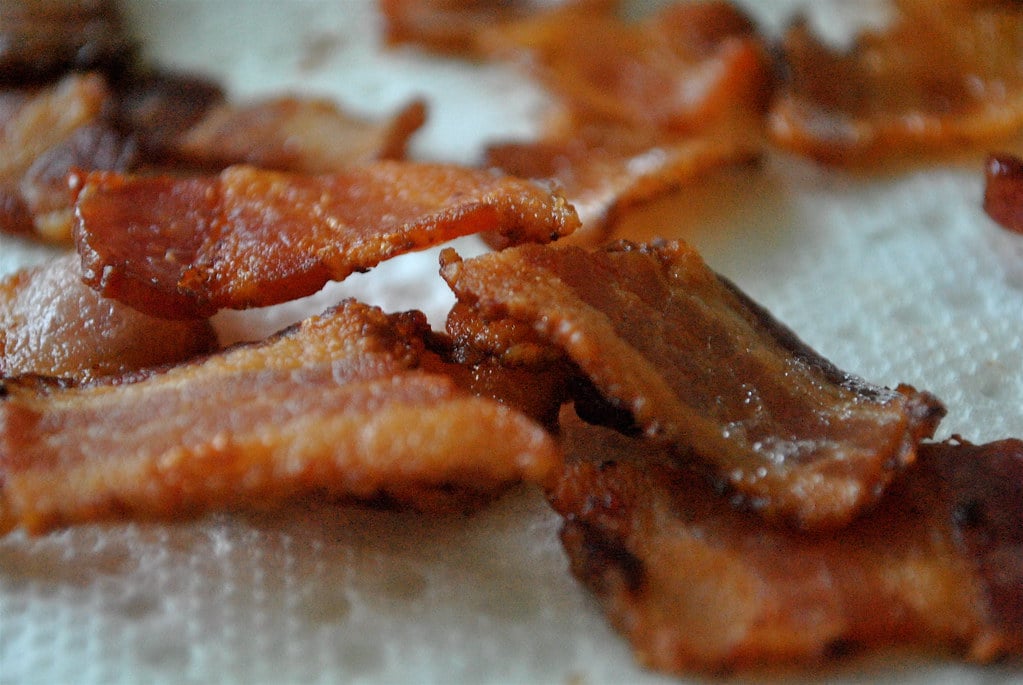
Source: flickr.com
Though this popular saying originated way earlier than the 20th century, it was widely used in the 1940s, 50s, and beyond. If you’re “bringing home the bacon” you’re earning an income to live on.

